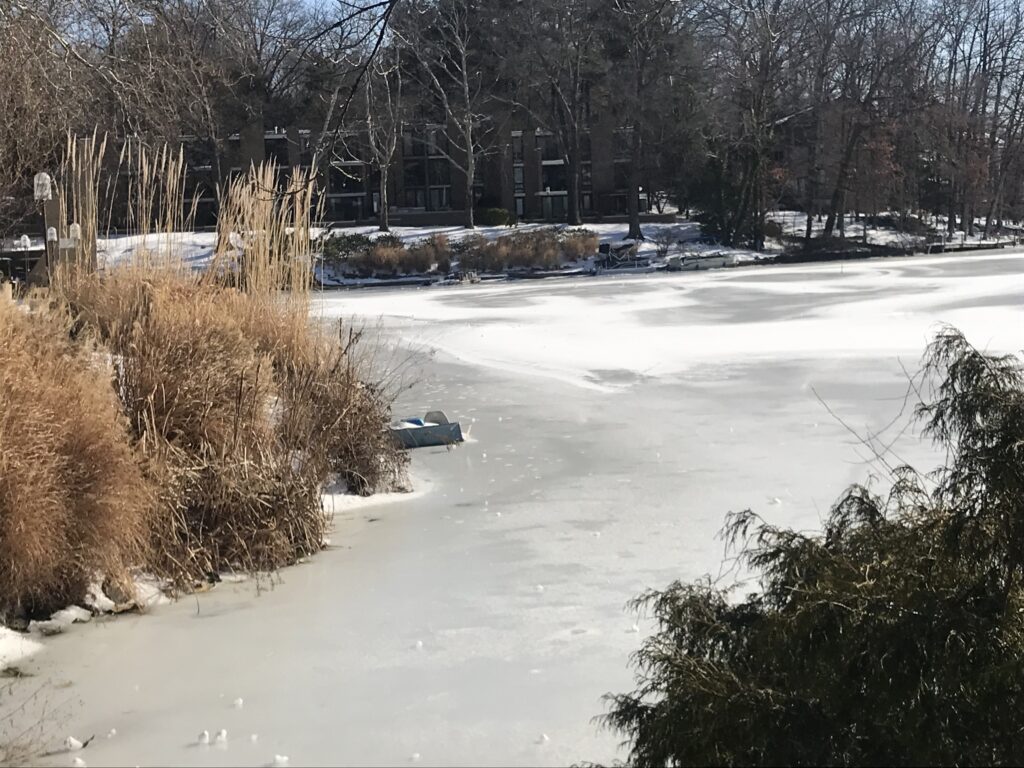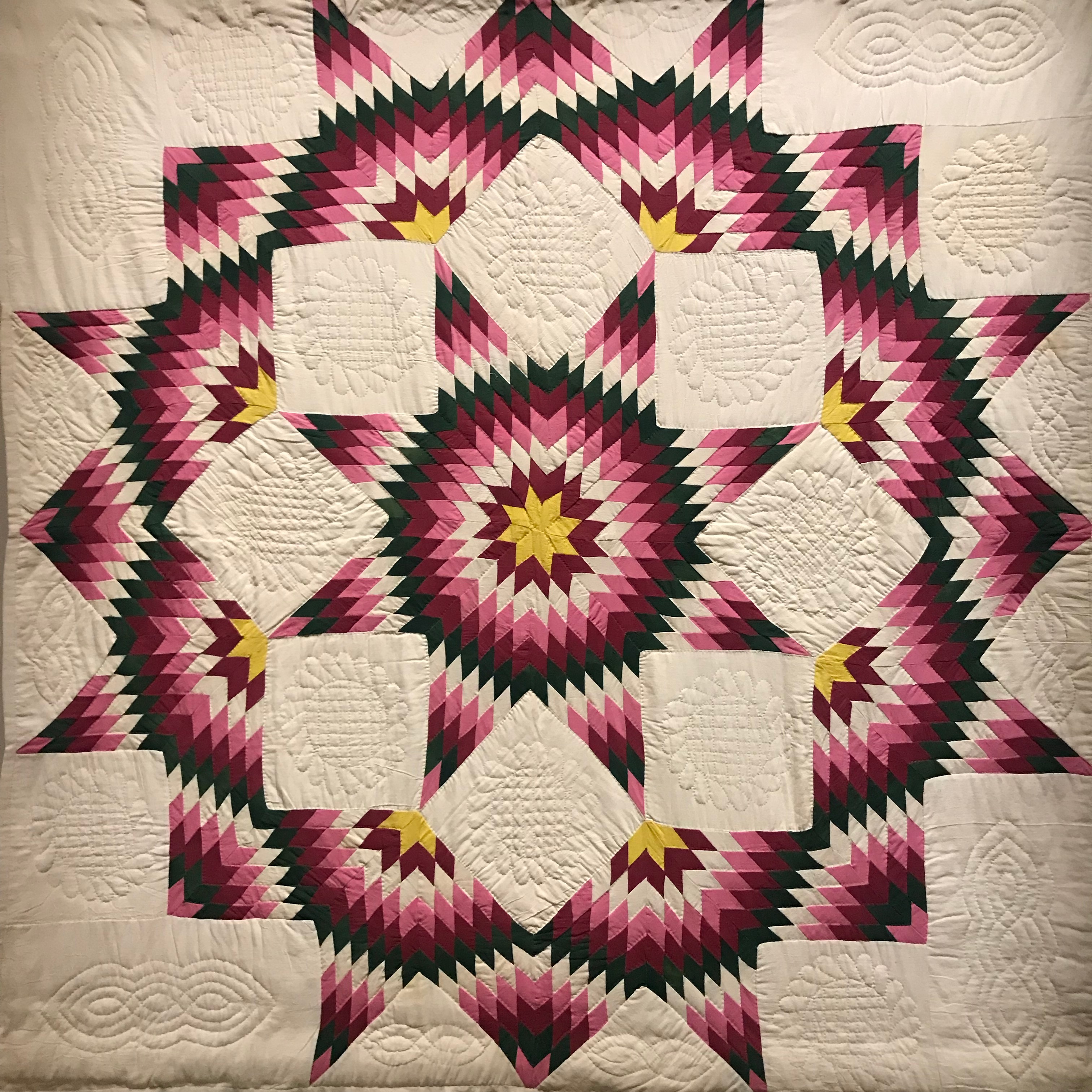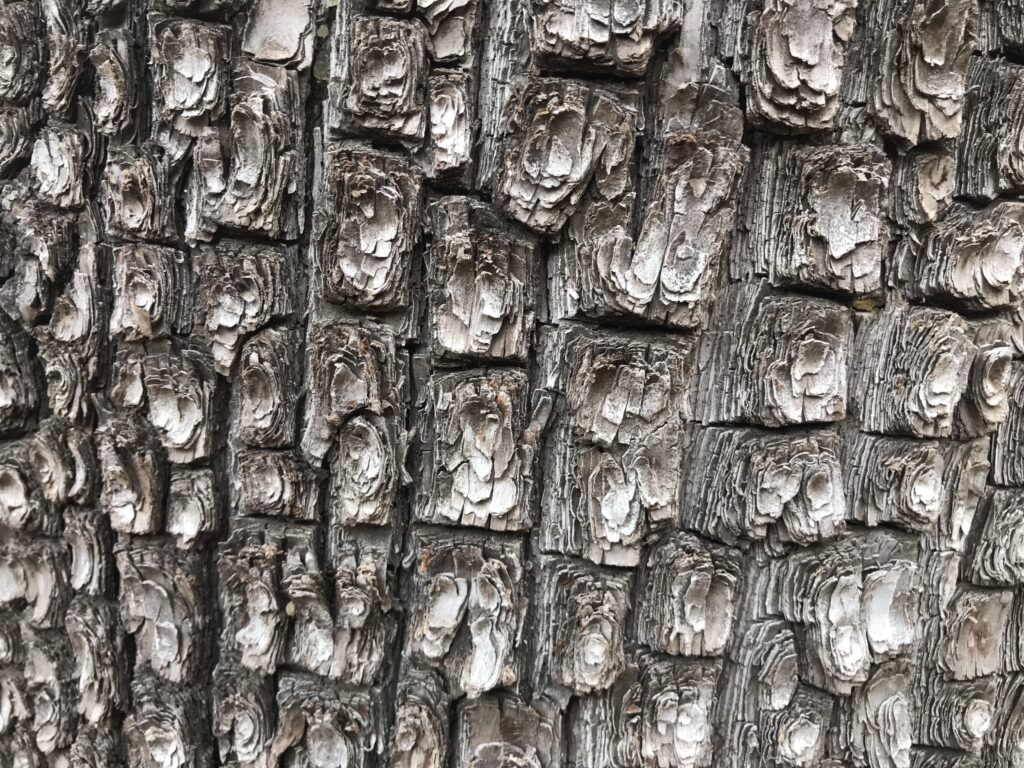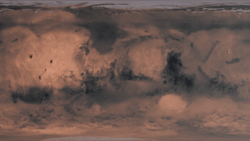The Bellwether
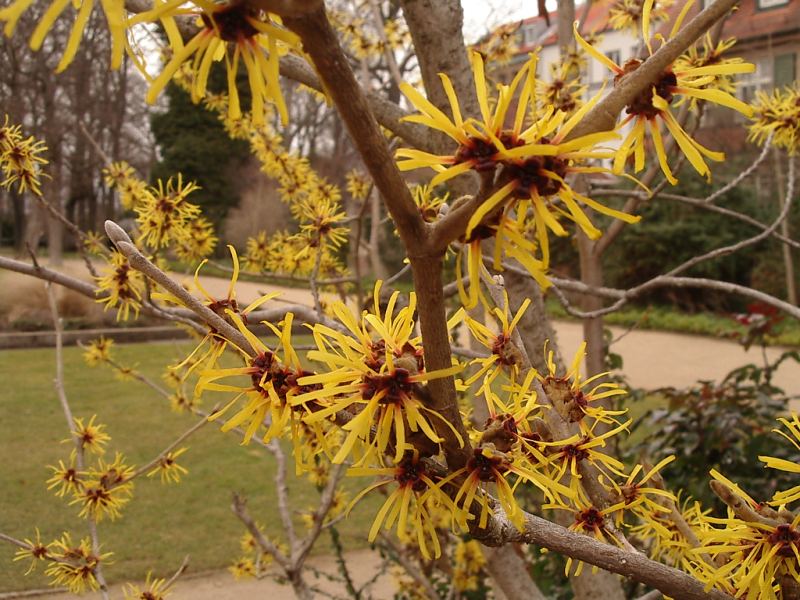
A spring bellwether has appeared, the first yellow flowers of the witch hazel tree. Some years I miss them, so focused I am on the snow and sludge that lies beneath. But this year the blossoms seem brighter than usual. They steal the show.
I’ll admit that the bar is rather low. There is nothing else blooming in the yard. The palette ranges from brown to gray with a few spots of green from the bamboo and ground cover.
In other yards, crocus are emerging, heather is budding, lenten roses are stirring. But here, the angle of the yard and the placement of plants ensure that winter rules for as long as it can.
Except for the witch hazel tree, the outlier, the bellwether. I’m glad it’s here.
(Photo: Wikipedia. I can’t get a good shot of my own tree right now!)
